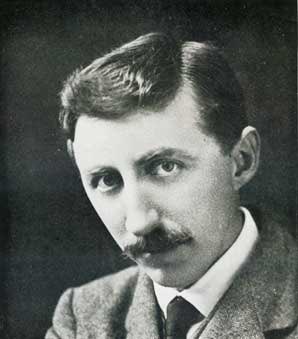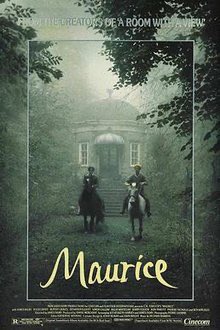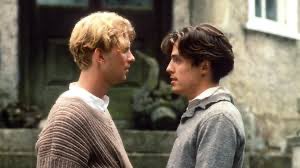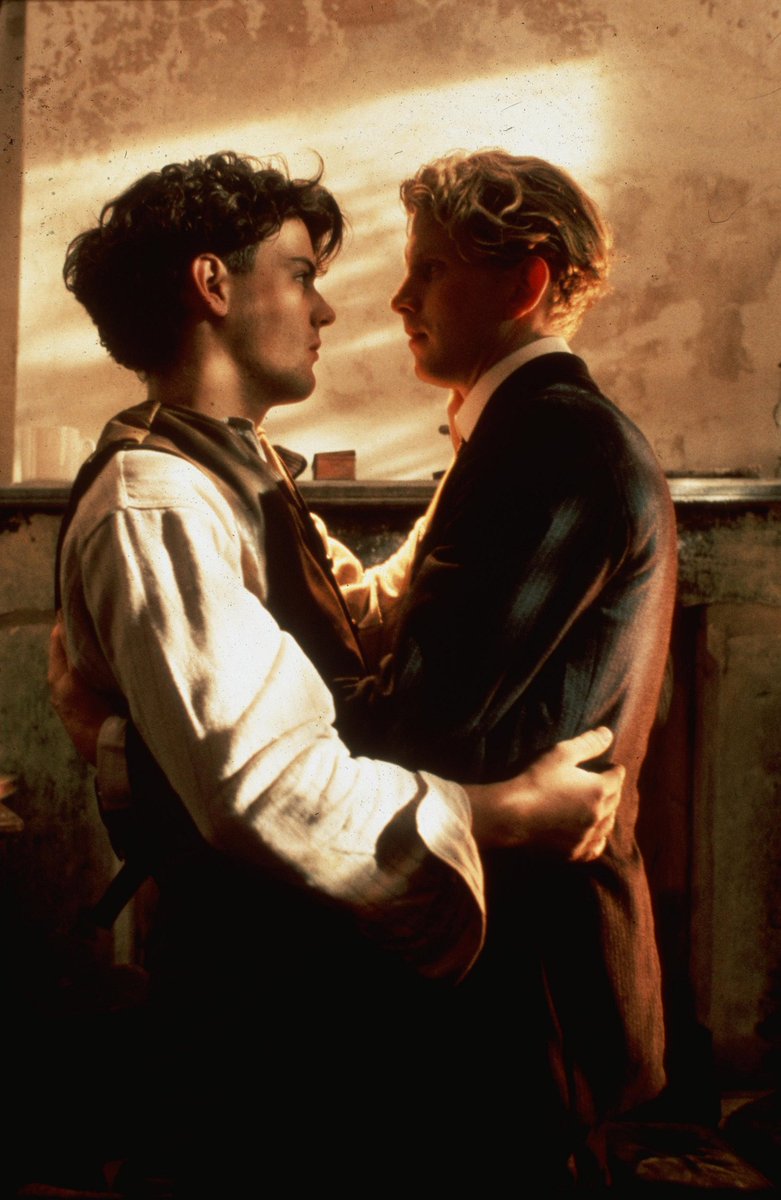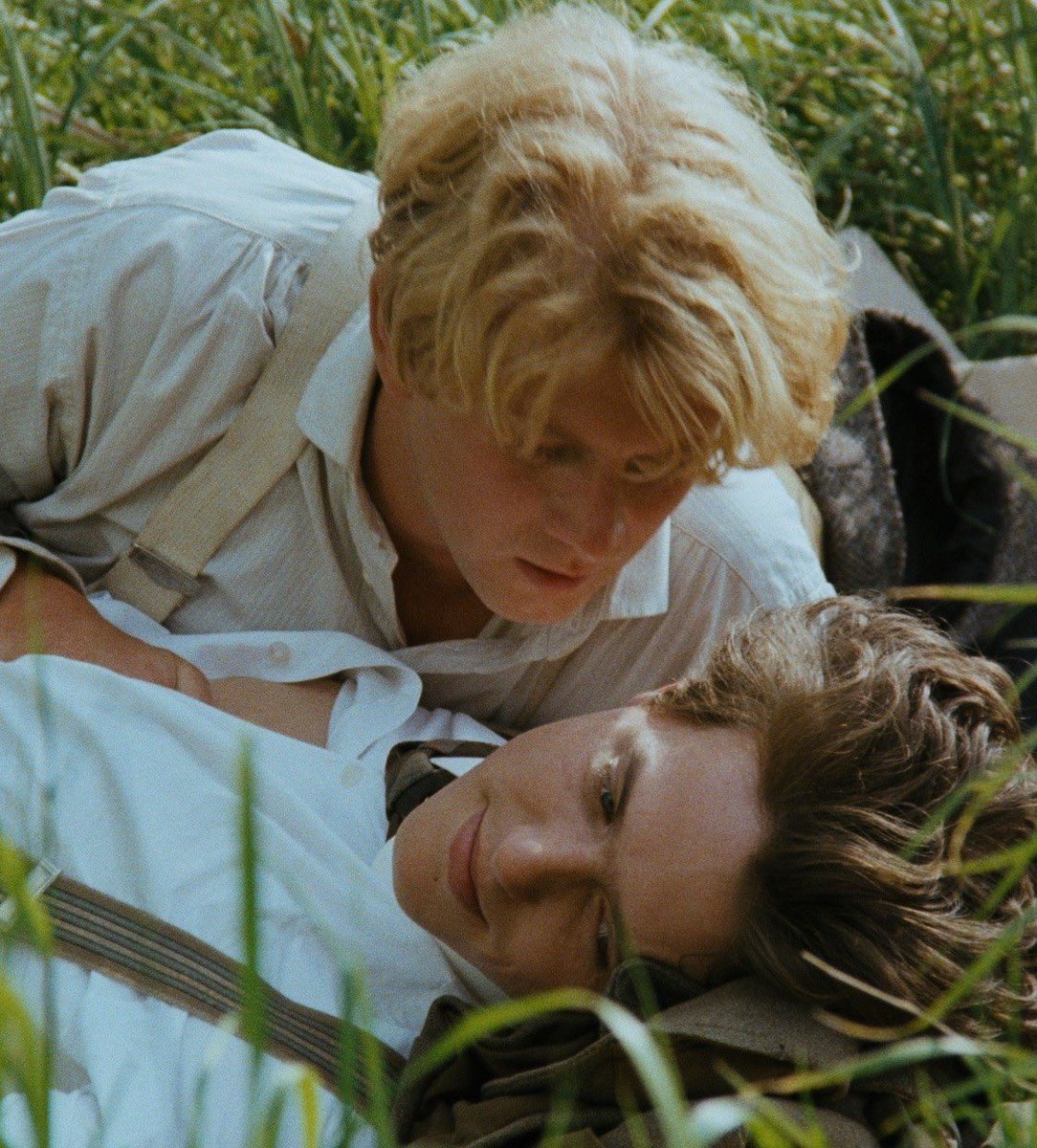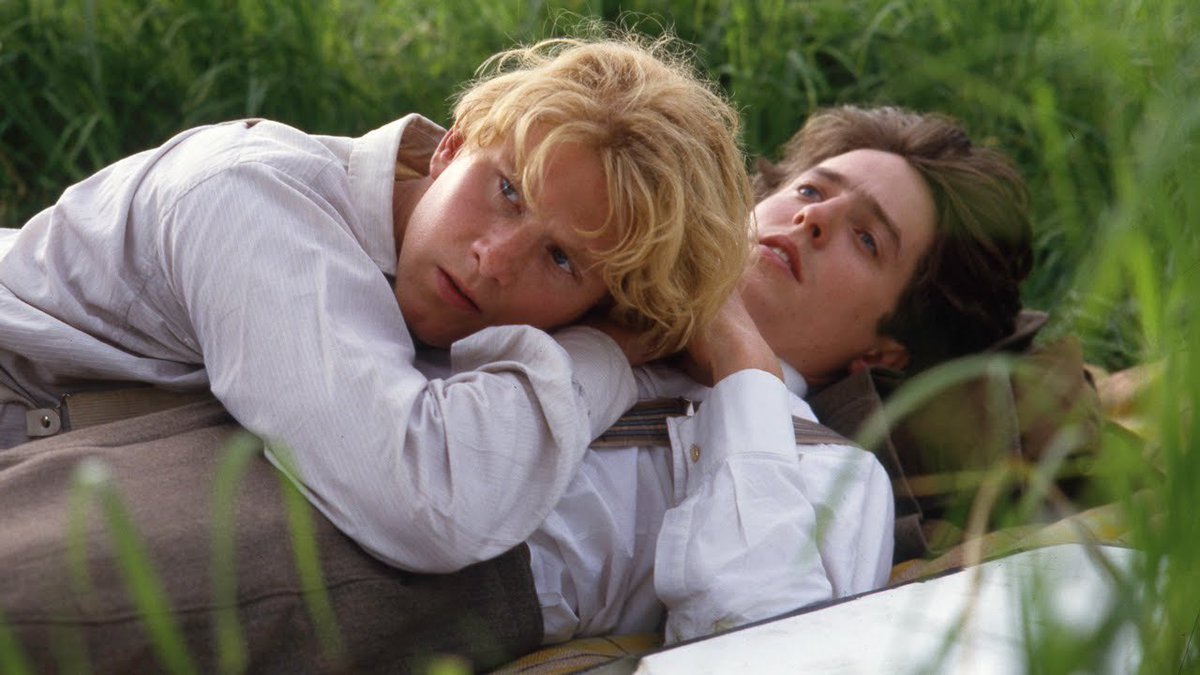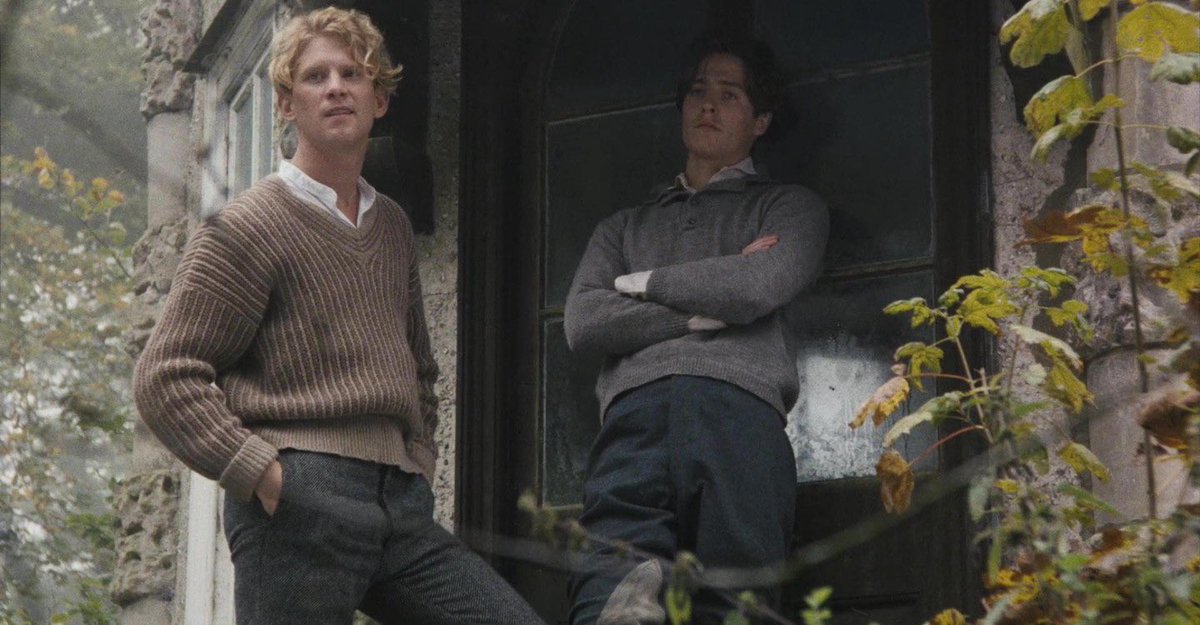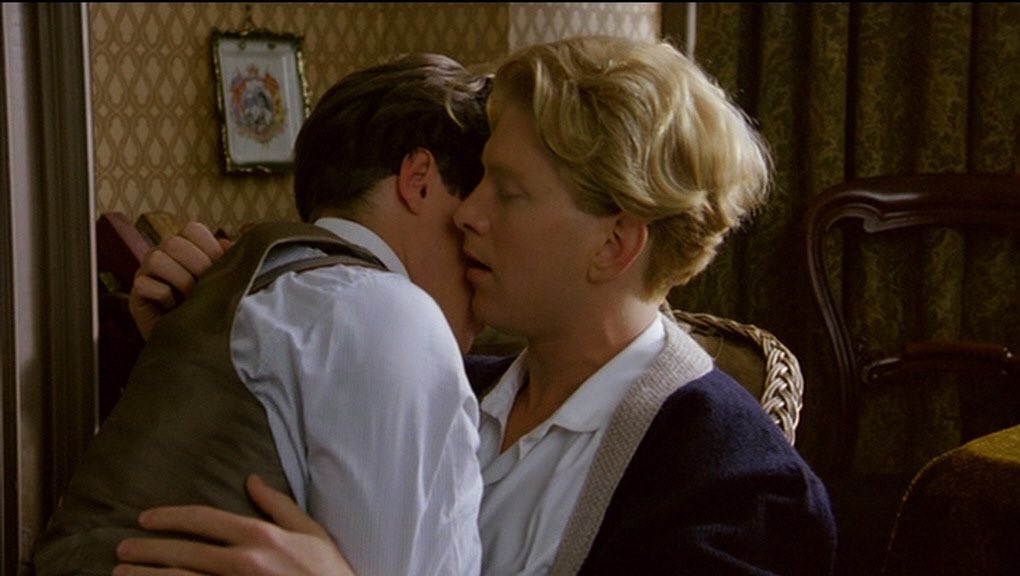LGBT+ REPRESENTATION IN MEDIA
Maurice is a novel by E. M. Forster.
A tale of love in early 20th-century England, it follows Maurice Hall from his school days to adulthood. It was written in 1913. It was published posthumously in 1971.
The last novel that E M Forster published in his lifetime was in 1924. But Forster lived until 1970, so for the last 37 years of his life he published no more fiction, preferring to write essays instead. His creative silence both baffled and disappointed his readers.
After his death, Forster’s reasons for reticence came into focus. In a diary entry of 1964, he reflected that ‘I should have been a more famous writer if I had written or rather published more, but sex has prevented the latter’.
His wording here is key. At King’s College Cambridge, Forster had left behind a hoard of unpublished material: a novel, two substantial fragments, stories, plays, poems. He might not have published any more fiction in years, but he had been writing.
It is the subject of those stories, however, that kept them hidden. Forster hadn’t been writing about ‘sex’ in the broad sense of the word, but, more specifically, the ‘sex’ which meant something to him: sex and love between men.
It’s that emotional connection of the author to Maurice that makes this novel a haunting read. A sort of glimpse into his hidden hopes and desires.
The relationship between Forster’s friend, poet Edward Carpenter and his partner, George Merrill, was the inspiration for the novel.
14 year old Maurice Hall discusses sex and women with his prep-school teacher just before going to public school.
14 year old Maurice Hall discusses sex and women with his prep-school teacher just before going to public school.
There, a fellow student Clive Durham introduces him to the ancient Greek writings about same-sex love and they enjoy a discreet, committed partnership, hoping for more from their attachment, but Clive, once an adult, under pressure from his mother, marries a woman.
Maurice is devastated. Unable to cope, he makes an appointment with a hypnotist, Mr. Lasker Jones, in an attempt to "cure" himself.
Although Clive refused a relationship with Maurice, they keep their friendship and Maurice is invited to stay with the Durhams.
Although Clive refused a relationship with Maurice, they keep their friendship and Maurice is invited to stay with the Durhams.
There, in Durham’s estate,at first unnoticed by him, is the young under-gamekeeper Alec Scudder,who is interested in Maurice. One night, Alec climbs to his window with a ladder and the two spend the night together.
But then Maurice panics and refuses to answer Alec& #39;s letters.
But then Maurice panics and refuses to answer Alec& #39;s letters.
Under pressure from Alec, the two meet again. They realize they are in love. Alec tells Maurice that he is emigrating to Argentina. Maurice asks Alec to stay; with a promise to give up his social and financial position, as well as his upper-class status, but Alec refuses.
With a heavy heart Maurice decides to bid Alec farewell and see him off at the harbour.But Alec is not there. He dashes back to the Durhams& #39; estate, hoping to find Alec, who tells Maurice that he had changed his mind and will stay. Alec says that they "shan& #39;t be parted no more".
Originally, Forster wrote an epilogue that he later discarded, because it was unpopular among those to whom he showed it.
The final epilogue ends with Maurice and Alec in each other& #39;s arms at the end of the day resolving that they must move on to avoid detection.
The final epilogue ends with Maurice and Alec in each other& #39;s arms at the end of the day resolving that they must move on to avoid detection.
Although Forster showed the novel to a select few of his friends, he did not publish it during his lifetime, believing it to have been unpublishable due to public and legal attitudes to same-sex love. A note found on the manuscript read: "Publishable, but worth it?".
Forster was particularly determined that his novel should have a happy ending, but knew that this would make the book too controversial for its time.
Edward Morgan Forster (1879 – 1970) was an English novelist.
Forster was gay, only out to his close friends and family.
Edward Morgan Forster (1879 – 1970) was an English novelist.
Forster was gay, only out to his close friends and family.
Forster was President of the Cambridge Humanists from 1959 until his death. Forster said "The humanist has four leading characteristics – curiosity, a free mind, belief in good taste, and belief in the human race."
All his works discussed societal hypocrisy and narrow mindedness. Maurice” explores the possibility of class reconciliation as one facet of a homosexual relationship, but more importantly allows for a happy ending which was quite uncommon in most LGBT themed romance of that era.
Forster’s desire for happy ending is even more important considering the fact that the majority of contemporary LGBTQ novels and movies, aside from slash and romance, are dramas where heroes aren’t imagined as happy couples. IMHO, Not much has changed in the last 100 years.
LGBT community not only needs representation in literature, art, cinematography and other aspects of contemporary culture but that representation must also be an adequate one - depicting and normalizing happy same-sex families, long lasting relationships, inclusion and diversity.
Maurice may not be one of the most popular works of Forster, but the novel brings up the internal struggles, the painful desire of being loved for who he is, while being accepted in the society, which is rigid and staunchy, full of values of yesteryear.
As such, it it as important and relevant today as it was 100 years ago.
The “Maurice” novel was made into a film in 1987, starring James Wilby as Maurice, Hugh Grant as Clive and Rupert Graves as Alec.
A few stage adaptations were written and produced over the years.
A few stage adaptations were written and produced over the years.
#LGBTVoices is celebrating the end of #Pride  https://abs.twimg.com/hashflags... draggable="false" alt=""> with threads on LGBT+ visibility and impact in media every day this week.
https://abs.twimg.com/hashflags... draggable="false" alt=""> with threads on LGBT+ visibility and impact in media every day this week.
Check out our hashtag for daily tweets. Join in the discussion and RT to spread! Check out previous tweets below. https://abs.twimg.com/emoji/v2/... draggable="false" alt="👇" title="Rückhand Zeigefinger nach unten" aria-label="Emoji: Rückhand Zeigefinger nach unten"> https://twitter.com/i/events/1275012552917950472">https://twitter.com/i/events/...
https://abs.twimg.com/emoji/v2/... draggable="false" alt="👇" title="Rückhand Zeigefinger nach unten" aria-label="Emoji: Rückhand Zeigefinger nach unten"> https://twitter.com/i/events/1275012552917950472">https://twitter.com/i/events/...
Check out our hashtag for daily tweets. Join in the discussion and RT to spread! Check out previous tweets below.

 Read on Twitter
Read on Twitter #LGBTVoices Celebrates Pridehttps://abs.twimg.com/emoji/v2/... draggable="false" alt="🏳️🌈" title="Regenbogen-Flagge" aria-label="Emoji: Regenbogen-Flagge">LGBT+ REPRESENTATION IN MEDIAMaurice is a novel by E. M. Forster. A tale of love in early 20th-century England, it follows Maurice Hall from his school days to adulthood. It was written in 1913. It was published posthumously in 1971." title="https://abs.twimg.com/emoji/v2/... draggable="false" alt="🏳️🌈" title="Regenbogen-Flagge" aria-label="Emoji: Regenbogen-Flagge"> #LGBTVoices Celebrates Pridehttps://abs.twimg.com/emoji/v2/... draggable="false" alt="🏳️🌈" title="Regenbogen-Flagge" aria-label="Emoji: Regenbogen-Flagge">LGBT+ REPRESENTATION IN MEDIAMaurice is a novel by E. M. Forster. A tale of love in early 20th-century England, it follows Maurice Hall from his school days to adulthood. It was written in 1913. It was published posthumously in 1971." class="img-responsive" style="max-width:100%;"/>
#LGBTVoices Celebrates Pridehttps://abs.twimg.com/emoji/v2/... draggable="false" alt="🏳️🌈" title="Regenbogen-Flagge" aria-label="Emoji: Regenbogen-Flagge">LGBT+ REPRESENTATION IN MEDIAMaurice is a novel by E. M. Forster. A tale of love in early 20th-century England, it follows Maurice Hall from his school days to adulthood. It was written in 1913. It was published posthumously in 1971." title="https://abs.twimg.com/emoji/v2/... draggable="false" alt="🏳️🌈" title="Regenbogen-Flagge" aria-label="Emoji: Regenbogen-Flagge"> #LGBTVoices Celebrates Pridehttps://abs.twimg.com/emoji/v2/... draggable="false" alt="🏳️🌈" title="Regenbogen-Flagge" aria-label="Emoji: Regenbogen-Flagge">LGBT+ REPRESENTATION IN MEDIAMaurice is a novel by E. M. Forster. A tale of love in early 20th-century England, it follows Maurice Hall from his school days to adulthood. It was written in 1913. It was published posthumously in 1971." class="img-responsive" style="max-width:100%;"/>
